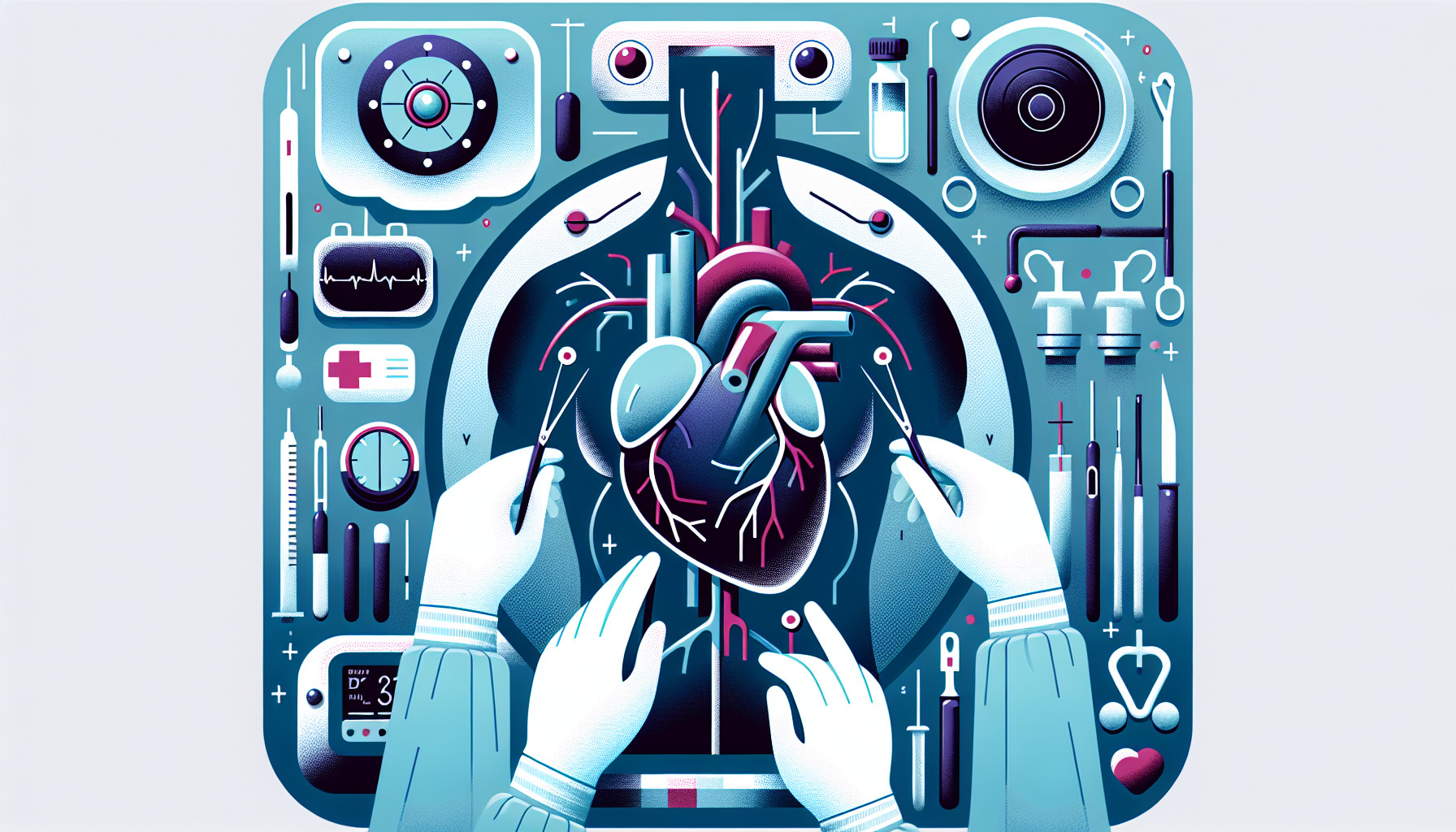Our Summary
This study looked at how a surgeon’s experience and the number of surgeries a medical centre performs affect the early outcomes of a specific heart surgery (off-pump coronary artery bypass). After analyzing data from over 1,500 patients, the researchers found that surgeries performed by more experienced surgeons and surgeries performed at centres that do a lot of these procedures had better outcomes. This included shorter procedure times, less need for additional procedures or interventions, less time spent in the hospital or intensive care, and lower death rates within 30 days of the surgery. The findings suggest that the experience of the surgeon and the volume of surgeries at the centre are important factors to consider for patients undergoing this type of heart surgery.
FAQs
- Does the experience of the surgeon affect the outcome of an off-pump coronary artery bypass surgery?
- How does the number of surgeries a medical centre performs impact the results of off-pump coronary artery bypass procedures?
- What are the benefits of undergoing an off-pump coronary artery bypass surgery at a centre that performs a high volume of these procedures?
Doctor’s Tip
A doctor might advise a patient considering coronary artery bypass surgery to choose a surgeon and medical center with a high level of experience performing the procedure, as this can lead to better outcomes and a smoother recovery. It’s important to do your research and ask questions about the surgeon’s experience and the volume of surgeries performed at the medical center before making a decision.
Suitable For
Patients who are recommended for coronary artery bypass surgery typically have severe coronary artery disease, which can lead to chest pain (angina), shortness of breath, and an increased risk of heart attack. Other factors that may indicate the need for coronary artery bypass surgery include:
- Blockages in multiple coronary arteries that cannot be effectively treated with medication or less invasive procedures like angioplasty
- Severe narrowing of the left main coronary artery
- Decreased heart function due to coronary artery disease
- Previous heart attack or other heart-related complications
- Symptoms that significantly impact daily activities and quality of life
It is important for patients to discuss their individual case with their healthcare provider to determine if coronary artery bypass surgery is the most appropriate treatment option for them.
Timeline
Before the surgery: The patient undergoes various diagnostic tests and consultations with their healthcare team to determine the need for coronary artery bypass surgery. This may include a coronary angiogram, stress test, and echocardiogram.
Day of the surgery: The patient arrives at the hospital and is prepped for surgery. Anesthesia is administered, and the surgeon performs the bypass procedure, which involves creating new pathways for blood to flow around blocked arteries in the heart.
After the surgery: The patient is closely monitored in the intensive care unit (ICU) for a period of time to ensure stability. They may experience pain, fatigue, and discomfort during the recovery process. Physical therapy and cardiac rehabilitation may be recommended to help with recovery and improve overall heart health.
Follow-up care: The patient will have regular follow-up appointments with their healthcare team to monitor their progress and make any necessary adjustments to their treatment plan. Lifestyle changes, such as diet and exercise, may also be recommended to prevent future heart issues.
What to Ask Your Doctor
- How many off-pump coronary artery bypass surgeries have you performed?
- What is your success rate with this procedure?
- How long have you been performing this type of surgery?
- How many surgeries does the medical centre perform annually?
- What are the potential risks and complications associated with this surgery?
- What is the expected recovery time after the surgery?
- What lifestyle changes will I need to make after the surgery?
- Will I need any follow-up appointments or tests after the surgery?
- What are the alternatives to coronary artery bypass surgery?
- How can I best prepare for the surgery to improve my outcomes?
Reference
Authors: Naito S, Demal TJ, Sill B, Reichenspurner H, Onorati F, Gatti G, Mariscalco G, Faggian G, Salsano A, Santini F, Santarpino G, Zanobini M, Musumeci F, Rubino AS, Bancone C, De Feo M, Nicolini F, Dalén M, Speziale G, Bounader K, Mäkikallio T, Tauriainen T, Ruggieri VG, Perrotti A, Biancari F. Journal: Heart Lung Circ. 2023 Mar;32(3):387-394. doi: 10.1016/j.hlc.2022.11.009. Epub 2022 Dec 22. PMID: 36566143
